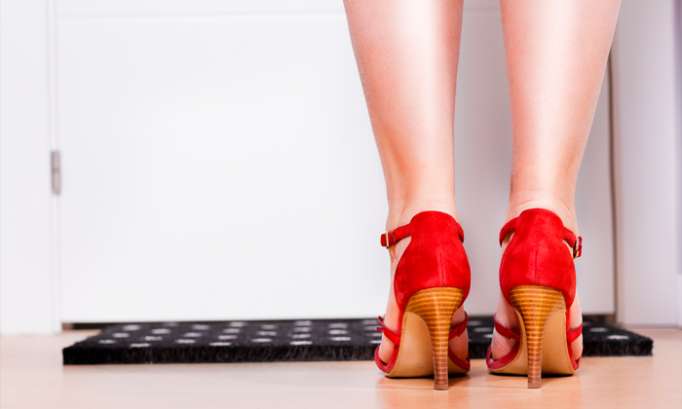According to new research presented at the European Society of Endocrinology in Barcelona, everyday products contain ‘obesogens’ which interfere with hormones and promote the build up of a fat in the body, Researchers at the Universities of Aveiro and Beira Interior in Portugal carried out a review into the current surveys and studies on obesogenic chemicals to see where people are most likely to come into contact with them.
They found that diet, house dust, and everyday products such as cleaning chemicals, kitchenware or cosmetics are the biggest sources of contaminants.
In light of the findings, the researchers have made seven recommendations to minimise the build of obesogens at home. They include choosing fresh, organic and pesticide free food over processed products, particularly those containing a long list of ingredients on the back
They also recommended removing shoes when entering the house to avoid bringing contaminants indoors, vacuuming often to stop chemicals building up in house dust and removing carpets at work and home, replacing them with wooden floors.
Finally they advise switching from plastic containers to glass or aluminium and avoid synthetic cleaning products.
Lead author Dr Ana Catarina Sousa said: “These are baby steps to achieve an obesogen-free lifestyle but a really good start. Essentially, watch your diet and get rid of the dust at home.
"Adults ingest about 50mg of dust every day, and children twice as much, so keeping the house clean is a very effective measure. And use a humid cloth to dust your furniture, rather than a cleaning product that may contain more of these chemicals."
Obesity rates in Britain have doubled over the past two decades and 63 per cent of adults are now considered to be overweight or obese, a figure that is expected to rise to two thirds by 2025.
Previous studies have shown the hormone-disrupting chemicals are present in pesticides, plastics, flame retardants, repellent coatings on kitchen utensils and clothes, and artificial sweeteners.
However British experts said more evidence was needed before lifestyle changes could be recommended.
Prof Russell Viner, President of the Royal College of Paediatrics and Child Health (RCPCH), said : “For some medical reasons such as protection against allergies, yes, it’s advised to keep a dust free home and so too is removing shoes to avoid bringing in dirt from outside, but these things will not make you a healthy weight.
“Only a balanced diet and regular exercise will do that.”
Commenting on the study Dr Peter Jenkinson, Toxicologist and Managing Director, Consultancy for Environmental & Human Toxicology and Risk Assessment (CEHTRA) France and UK, added: “Some of the recommendations given are sensible but not for reasons of obesity avoidance. Choosing local products, for example, can reduce carbon emissions.
“There is no evidence given in this abstract that indicates that adopting any of these recommendations will actually reduce obesity.”
The Telegraph
More about: science
















































